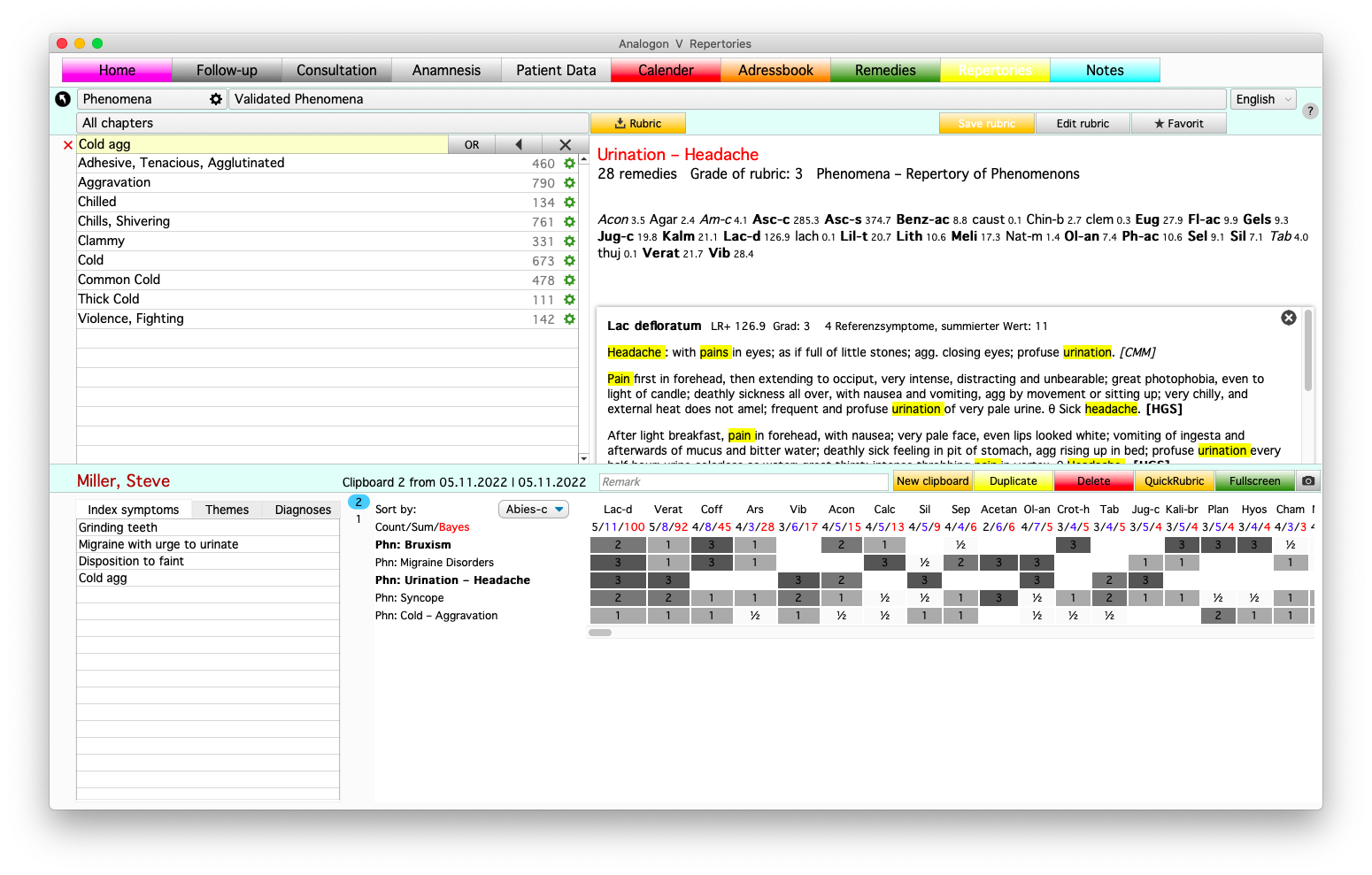Repertories
Analogon contains the completely newly developed Repertory of Phenomenons. Phenomena is the first repertory available that is completely referenced in the Materia medica. The most important sources of homeopathic drug knowledge, a total of about 20,000 pages of literature, were analyzed and carefully indexed using statistical and computer linguistic techniques. In this way, approximately 3,000 phenomena were identified, which form the core of homeopathic case analysis. Freely combinable with each other, Phenomena enables a repertorization that combines the advantages of the approaches according to Kent and Boenninghausen – and goes far beyond. The reference to the original symptoms of the Materia medica remains seamlessly traceable in the wording throughout the entire repertorization process.
The Repertory of Phenomenons is based on the complete analysis of the following Materia medica works:
T.F. Allen, Encyclopedia
T.F. Allen, Handbook
W. Boericke, Homeopathic Materia medica
C.M. Boger, Synoptic Key Materia medica
J.H. Clarke, Dictionary
S. Hahnemann, Pure Materia medica
S. Hahnemann, Chronic Diseases
C. Hering, Guiding Symptoms
A. Lippe, Keynotes and Red Line Symptoms
A. Lippe, Textbook
Probably the most comprehensive thesaurus in homeopathy ensures that rubrics are found regardless of their wording. Synonymous rubrics with different, untraceable entries are a thing of the past. Each phenomenon has been carefully defined and elaborated, meaning and sources are always transparent for the user.
In accordance with the state of the art, the grading of entries is based on Bayes' theorem, which allows a much more valid determination than previous methods. By calculating the likelihood ratio values, i.e. the relative frequencies, distortions – especially the overestimation of polychrests – are minimized, and the characteristic remedies are presented.
Here you can find a video tutorial on working with Phenomena.
Here the case analysis with Phenomena is explained in more detail.
Besides Phenomena, the classical repertories are also integrated or available as additional modules:
Boger, General Analysis
Boger, Synoptic Key
Boenninghausen, Therapeutic Pocketbook from 1846, with Polarity Analysis (German)
Kent, Repertory of the Homeopathic Materia Medica
Phatak, Homeopathic Repertory (German)
The rubrics of Kent have been weighted on the basis of statistical methods as well as clinical experience (including Künzli's points); this makes rubrics that have a higher relevance for the analysis immediately recognizable. Another special feature is the use of the patient's own treatment results within the repertory.
Following Boenninghausen/Polarity Analysis, the modality questionnaire HQ36 offers a quick possibility of case analysis with click-to-rep function.
